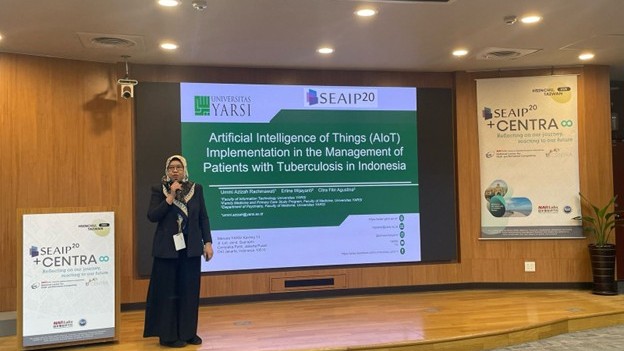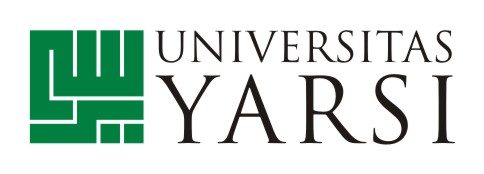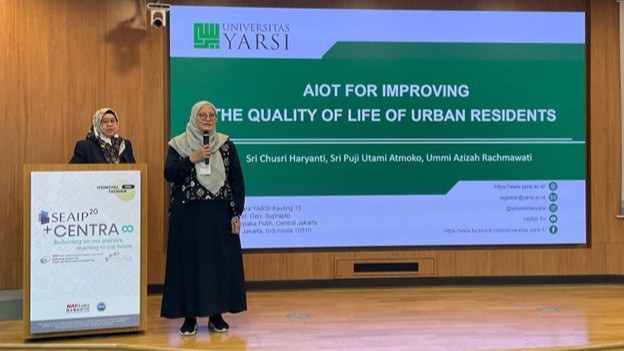Jakarta, [February 21, 2025] – A research team from the Faculty of Information Technology (FTI) and the Faculty of Medicine (FK) of YARSI University presented their research on the implementation of Artificial Intelligence of Things (AIoT) for tuberculosis (TB) patient management at the SEAiP 20 + CENTRA conference at YARSI University, Jakarta, and also at the Southeast Asia International Joint-Research Program (SEAIP 20) held in Taiwan.
This research is a collaboration among Ms. Erlina Wijayanti, Ms. Citra Fitri Agustina, Ms. Ummi Azizah Rachmawati, Ms. Sri Chusri Haryanti, and Ms. Sri Puji Utami Atmoko, focusing on how AIoT can optimize the monitoring and treatment of TB patients, especially in urban environments and areas with limited access to healthcare services. This innovation aligns with the IoT specialization of the Informatics Engineering Study Program at YARSI University.
The application of AIoT technology in TB patient management aligns with the Sustainable Development Goals (SDGs), specifically:
- SDG 3: Good Health and Well-being
The AIoT system enhances real-time monitoring and data analysis for TB patients, making treatment more effective and supporting SDG 3.3’s target of ending the tuberculosis epidemic. This innovation improves the accessibility and efficiency of healthcare services, reducing the spread of TB. - SDG 9: Industry, Innovation, and Infrastructure
Integrating AI and IoT into the healthcare sector reflects advancements in digital health infrastructure. The research contributes to the development of smart medical technologies that support sustainable innovation in healthcare. - SDG 11: Sustainable Cities and Communities
AIoT-based patient monitoring promotes healthier, more sustainable urban environments, ensuring better public health responses to infectious diseases. - SDG 17: Partnerships for the Goals
Participation in SEAIP 20 in Taiwan fosters international academic collaboration, connecting researchers, healthcare practitioners, and industry experts to develop technology-driven solutions for global health challenges.

During the conferences, researchers highlighted how AIoT can improve TB treatment efficiency, reduce transmission risks, and provide better healthcare access for patients. The events were attended by academics and professionals from various countries, facilitating discussions on technology’s impact on the medical field.
By actively engaging in AIoT research and international academic forums, YARSI University demonstrates its dedication to health technology innovation and SDG achievement, contributing to the fight against infectious diseases like tuberculosis and improving community well-being.


